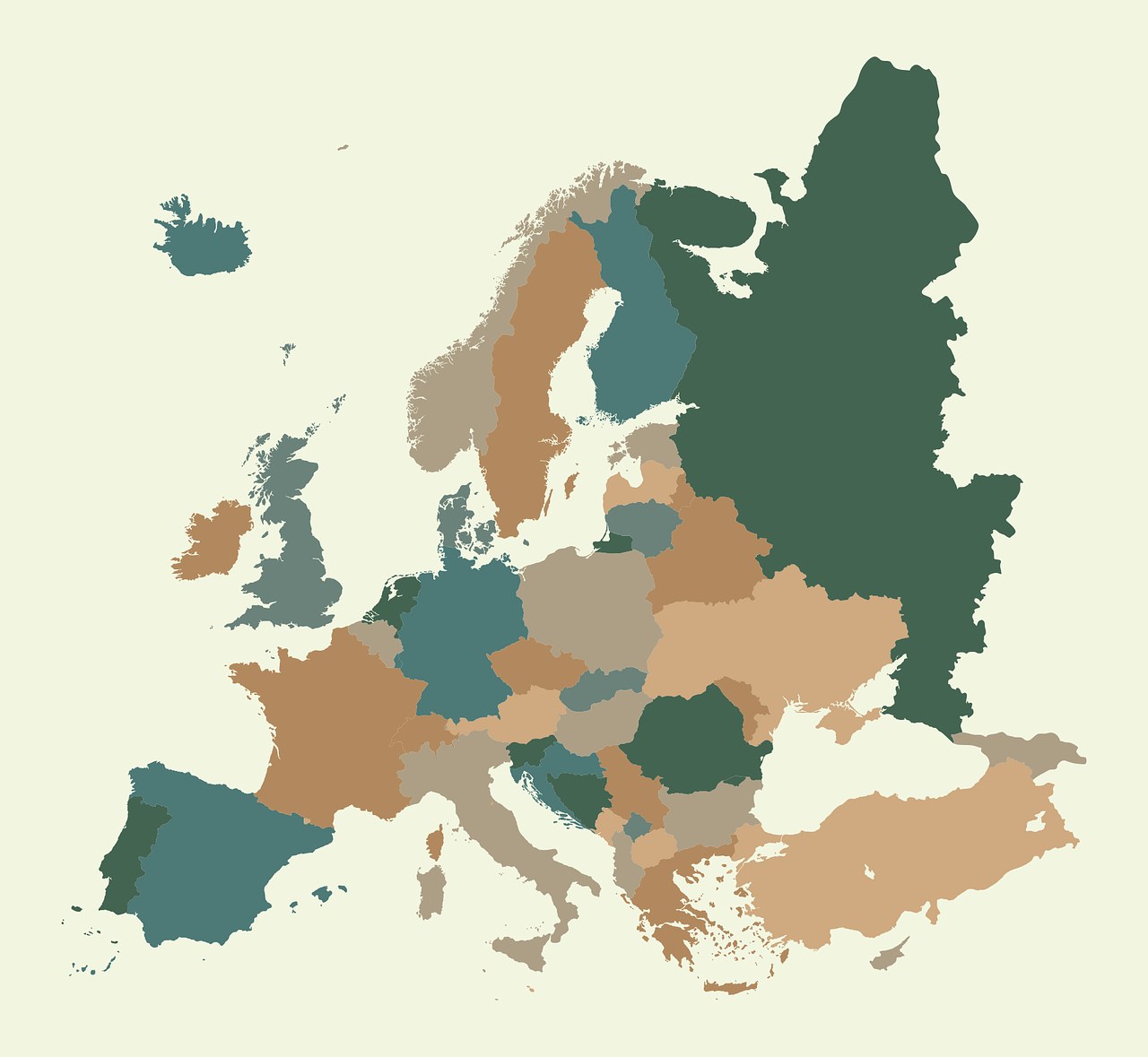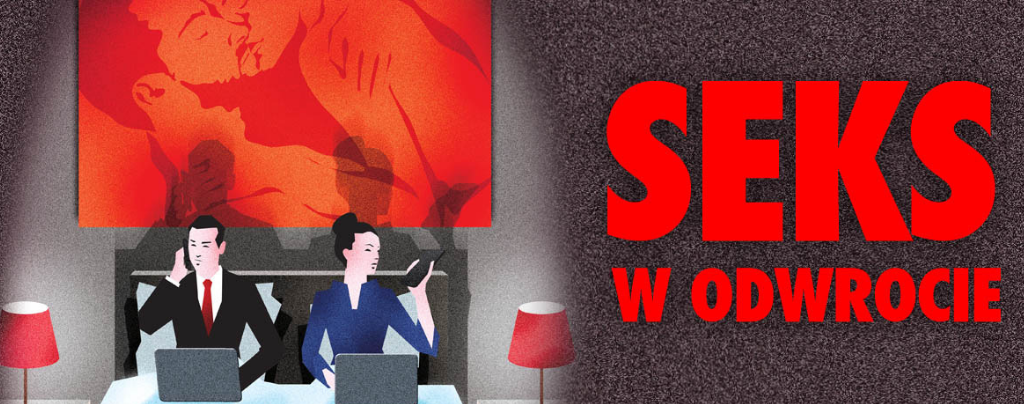
Nie masz czasu na zapoznanie się z całością artykułu?
Wystarczy, że klikniesz ikonę „oznacz artykuł do przeczytania później”. Wszystkie zapisane publikacje znajdziesz w profilu czytelnikaBought for shiny beads

In Michael Ende’s Momo: Or the Curious Story about the Time Thieves and the Child Who Returned the People’s Stolen Time, a town is visited by the Men in Grey, who try to convince the locals that they are wasting their time on trivialities. The men offer to store their time in the Timesavings Bank, to be used after they retire. As a result, the locals become cranky, no longer care about others, drop their hobbies and begin to waste away. Eventually, Momo returns the stolen time to the people and everything returns to normal.
Just a fairy tale? Not quite. The Men in Grey are real, and have been roaming the world for years, stealing our time and turning us into modern-day slaves. They are present in Poland as well.
Exaltation of workaholism
One of the ideas brought by the Men in Grey is the “ethos of availability”. President of the parcel machine company InPost, Rafał Brzóska, exemplified its essence in his interview with naTemat.pl: “People ‘went to work’ under communism. And, unfortunately, some people never stopped doing it. They come to work at eight, leave at four, and do not answer their company phone or turn it off right as they go out the door. They check out of their company’s life – that is what ‘going to work’ is. Now, someone whom I can call at 9:00 PM or mail them and receive a reply after half an hour – to me, that is a valuable employee of a modern organisation,” says Brzóska about his ideal employee.
What is it like in practice? It’s already 7:00 PM? Sorry kids, can’t play with you just yet, still got work to do. You look great in that lingerie, honey, but not now, I need to check my email, maybe President Brzóska sent me something, and he likes it when I reply within half an hour. It is not about dogmatically sticking to an eight-hour work day – a complete separation of work and private life is virtually impossible in the creative industry. However, it is very easy to miss the point where private life becomes secondary to professional life, turning into something you can spend your money on, if even that. It is difficult to fight it, as company executives tend to force their employees to adopt this style of work. However, the situation truly becomes hopeless when it is we who decide that this state of affairs is completely normal, or even something worth aspiring to.
Frozen time
This pattern of behaviour is related to the fact that, in a world where even a brief gap in one’s employment or break from acquiring new skills can result in you being out of the loop, an uninterrupted employment record becomes the norm. Women are particularly vulnerable in this context – and the Men in Grey are ready to pounce on them, as they did at Facebook and Apple in 2014. The companies offered to pay their female employees to freeze their eggs, to be unfrozen and fertilised after they have climbed the career ladder and feel ready to become mothers. This phenomenon even has its own name – social freezing – and was met with applause from the supporters of female “self-fulfilment”. This enables women to make a deposit at the Timesavings Bank consisting of the years they would have to spend feeding their children and changing their diapers, driving them to kindergarten and looking after them when they become ill. Corporations promise them that they will be able to withdraw those years later – when they have fulfilled themselves professionally.
Facebook and Apple offered to pay their female employees to freeze their eggs, to be unfrozen and fertilised after they have climbed the career ladder and feel ready to become mothers
For companies, it is very profitable to do so. Women who opt for social freezing can work without worrying that they will lose touch with their profession (which is extremely important in the IT industry). And for women? They agree to adopt a hierarchy of values in which work and professional development are higher than parenthood during a time in life that is optimal for having children. They voluntarily give up their valuable time, even though they can never really get it back.
Slaves to instalments
When we really begin to think that we should be available 24 hours a day, and that professional success is of paramount importance, then we are truly lost. But even without it, the Men in Grey are difficult to resist, especially when we consider the current job market and economic pressures. The situation is further exacerbated by Poland’s lack of a middle class, which is its communist legacy: in our version of capitalism, there are no owners, and those who pass for middle class are actually contractors making more or less money, but who do not own any significant property. As a result of the fall of socialism, a brutal race for ownership began. The market was flooded with goods which had previously been seen only on TV and abroad, and the property market grew unconstrained – it was no longer required to wait for years for a flat. Then, the Men in Grey, in the guise of trade representatives, construction companies and the financial sector, convinced us that we could buy anything – and if not, then we could pay in instalments.
Amusingly enough, the virtues necessary to acquire a flat in communist Poland were purely burgheresque. The majority of Poles acquired their flats by saving up. Setting aside the numerous flaws of the socialist shortage economy, this habit was worth cultivating. Unfortunately, the advent of capitalism caused the frugal burgher ideal to be replaced with that of an unrestrained nobleman who buys a several-hundred-metre house surrounded by hectares of useless land, obviously financed with a loan whose value exceeds that of the property itself. Millions of people take out cash loans or loans for a “holiday of your dreams” or other pleasures – all of those people are victims of the Men in Grey. They are bound to their huge debts and the necessity to constantly earn money to pay them off. Professor Krzysztof Rubiński calls those people “financial slaves”.
Voluntary slavery
This expression is in no way an exaggeration – the phenomena I describe here inevitably lead to slavery. It is no longer necessary to load people on ships and transport them to another continent – the rich can get by without forcing the lawmakers to adopt solutions favouring them (at least in this area). People are eager to voluntarily deprive themselves of freedom, feeling proud because they are “doing the right thing”.
Paradoxically enough, this would not be possible if we had not experienced slavery under real socialism. Under the communist rule, everyone was property of the state, as exemplified by forced labour or the prohibition of leaving the country without permission. The systemic transformation marked the beginning of the formation of a new economic system, one based on private ownership of the means of production – capitalism. The degree of purity of our capitalism and how far behind we have left real socialism is irrelevant – though we have indeed come a long way since then, something we should be happy about. What is important is that the new economic system was accompanied by a culture whose dangers we were not aware of and could not defend against.
Its principle is that democratic capitalism is a guarantee of freedom. That freedom can be curtailed by the state, but it is the only entity which we should be concerned about in this respect. As long as the authorities stay out of our business, we are safe, and by using the resources we produce, we can enjoy the fruits of the free market. As our market-related decisions are voluntary, constrained only by the size of our wallet, our ability and time, it is difficult to call most of them as objectively bad – even if other people may consider them unreasonable. What eludes us is that we can also sell our freedom on this market – and do so completely voluntary.
Feudalism could return
Even the best anti-loan shark laws cannot protect us from our own greed and the Fata Morgana of acquiring goods now and paying for them later
I do not condemn dedication, having a career or taking out mortgage loans. However, the scale of these phenomena may have a disastrous impact – the enslavement pervading our culture may become institutionalised. It is also entirely possible that “the battle between socialism and capitalism which plagued nearly the entire 20th century will be won by feudalism, as it is the form of organising society which best fits the chaos that is the ruins of western civilisation,” as Lech Jęmczyk puts it in his book Trzy końce historii, czyli Nowe Średniowiecze (Three ends of history, or the New Middle Ages). This topic has already been discussed on the pages of Nowa Konfederacja by Michał Kuź. For example, if the price of the Swiss franc exceeds the psychological threshold of seven zlotys, those who took out loans in Swiss francs will stop paying them off en masse Those who took out loans in zlotys will follow suit, littering our streets with homeless people. The politicians will adopt a law according to which those who have declared bankruptcy will be able to return to their homes, their debts cancelled. In return, they will have to perform free labour for their bank once a week. They will also be assigned to their flats, and where they work (as well as their children’s education) will also be decided by the former creditor, which will help avoid irresponsible decisions. Finally, newly-wed women will be led by their husbands to the back rooms of offices belonging to bank executives, so that they can exercise their right of the first night.
Impossible? 160 years ago, those living in the south of the U.S. considered the abolition of slavery to be impossible, same with 18th and 19th-century Polish peasants, who considered it impossible for serfdom to be done away with. Treating all inhabitants of a state (or nationals) as equal in their citizen rights is a relatively new invention, and there is nothing that says we can never diverge from it. The question is whether we will actually go in that direction, selling off our freedom piece by piece.
Finding Momo
The state can protect us to a certain degree – for example by regulating the loan market and eliminating the lack of symmetry between financial institutions and their clients. Still, even the best anti-loan shark laws cannot protect us from our own greed and the Fata Morgana of acquiring goods now and paying for them later. Neither can it protect us from the need to signal our many professional achievements at the cost of our family lives, though we can allegedly find self-fulfilment as spouses and parents as well (this applies to both mothers and fathers).
The problems we are facing were diagnosed as early as in 1958 by German economist Wilhelm Röpke in his book A Humane Economy. As a proponent of the free market, he condemned those aspects of culture which impeded it. “A modern Faust, enjoining the fleeing moment to ‘linger a while, thou art so fair,’ would not lose his soul but cause a traffic jam,” says Röpke ironically about our rushing headlong into nowhere. Criticising the application of financial rationality to every aspect of life, he described allotment gardens as not the best way of vegetable production, but certainly a great way to produce happiness. His opinion on consumer loans and paying by instalments was that “an essential part of a reasonable and responsible way of life [is] not to live from hand to mouth, to restrain impatience, self-indulgence, and improvidence alike, to think of the morrow, not to live beyond one’s means, to provide for the vicissitudes of life, to try to balance income and expenditure, and to live one’s life as a consistent and coherent whole extending beyond death to one’s descendants rather than as a series of brief moments of enjoyment followed by the headaches of the morning after.”
Though unattractive, the remedy is to rediscover the beauty of burgher virtues. Freedom is within us, and we decide whether we want to sacrifice it in return for achieving our dreams here and now, with no regard for what comes later, or if we want to arduously cultivate it to bear the best fruit possible.
The translation was financed by the National Freedom Institute – Centre for Civil Society Development from the funds of The Civil Society Organisations Development Programme 2018-2030

Tłumaczenie sfinansowano przez Narodowy Instytut Wolności – Centrum Rozwoju Społeczeństwa Obywatelskiego ze środków Programu Rozwoju Organizacji Obywatelskich na lata 2018-2030

Zobacz
The China Dream reigns at sea
A study published in 2016 argued that China was going to have the second largest navy in the world, second only to the US in 2020. Now we have new estimates suggesting that China’s navy is already the largest one in the world






















